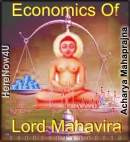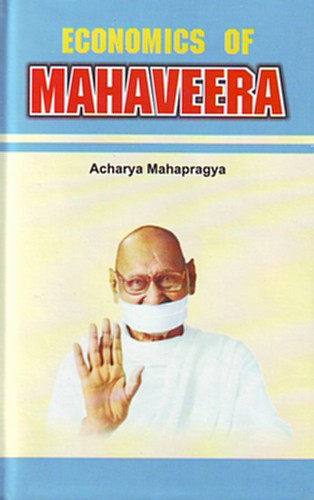
The second parameter is inspiration. What was the inspiration? A person works being inspired with some urge. He works according to his inspiration. Mahavira's inspiration was the good of others.
Associated with money, there are three types of objectives - selfness, benevolence and universal good. The inspiration of Mahavira was to achieve universal good, ultimate good. In Indian thinking, salvation became synonymous with universal good, which is freedom from bondage. To become free from bondage is to achieve ultimate goal.
The Inspiration of Mahatma Gandhi was the same. Gandhi regarded salvation to be the ultimate goal.
Marx was inspired by compassion. Marx, while being an economist, was also a compassionate and sensitive personality. In India, the thinkers inspired by the principle of holistic or multi-dimensional development regard him as a saint. He had suffered the pangs of poverty. Incensed, he enunciated the Theory of Socialistic Economics. He believed that poverty could be eradicated. According to him, poverty and prosperity are both creations of man. It is therefore, possible for man to banish poverty.
By this line of thinking, earlier we have said, Marx was compassionate, Marx comes close to Mahavira. Mahavira's theory as well was that prosperity and poverty are creations of man and are generated by material conditions, area, time and perceptions. Neither of this is God-given nor is a result of fate. Many philosophers had however, regarded this phenomenon as creation of fate. Many Jains also used to consider these as creations of fate, but according to the Jain doctrine of karma, prosperity and poverty, acquiring wealth or losing wealth, are not the result of fate. They are the product of time, conditions, area or some peculiar circumstances, which make man poor or rich. Nor are they a
permanent feature that the poor will always remain poor and the rich will always remain rich.
These are the conditions created by man. As a corollary, these can be changed, can be transformed. Having been inspired by compassion, Marx conceived the socialistic economic system and maintained that man can conquer economic conditions. Fate does not ordain that he should remain hungry. In other words, if he does not get clothes or bread, it is not due to fate. What he has or does not have can be transformed with the aid of a system.
For Keynes, the Inspiration was that of selfish interest. He was motivated by the desire for prosperity, in fact, making everybody prosperous. The driving urge, therefore, was that of selfish interest. His proposition was: selfish interest is the most powerful inspirer. The more this is provoked, the more would be the growth. The entire theory of Keynes is based on the provocation of selfish interest. Let there be more greed and more competition, and there will be more economic growth, which means more prosperity.
 Acharya Mahaprajna
Acharya Mahaprajna

